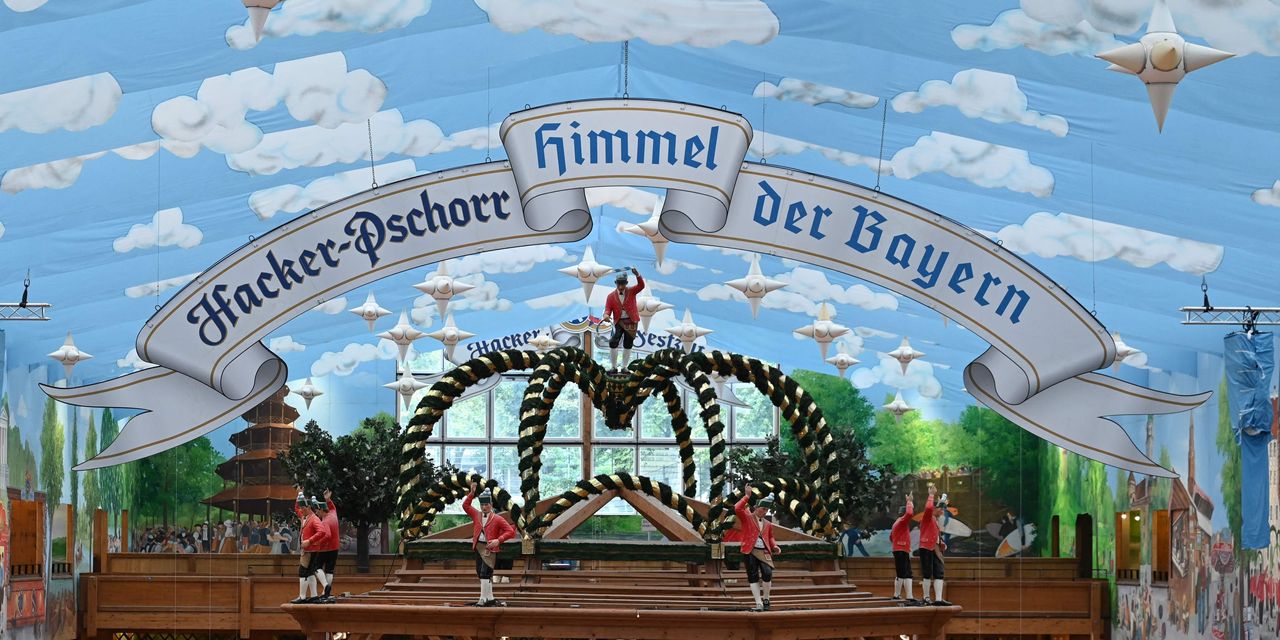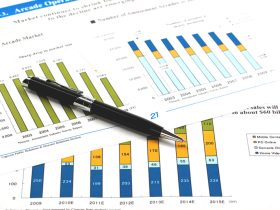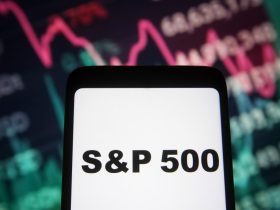When merry revelers lift their steins to mark the start of Germany’s annual Oktoberfest, they might want to sip slowly, given they will now be paying €13.75 ($14.67) per beer.
That’s based on an analysis from a team at Berenberg, who provided this chart showing the soaring costs of beer prices at the Munich Oktoberfest compared to other consumer and food inflation measures:
The Munich festival is due to kick off this Saturday. And while the cost keeps rising, the celebratory large glass of Bavarian beer —- served in a stoneware mug known as a Maß or stein — often doesn’t seem to reach the required 1 liter mark once the foam has settled, notes Holger Schmieding, chief economist, who led the report.
“Do not even try to compare the price per liter to the cheap beer cans available at the discount retailers nearby. The difference might make some crave a stiffer drink to drown the financial pain,” he and his team said.
Citing data from German price statistics dating back to 1991, Berenberg’s economists said the price of an Oktoberfest beer has soared at an annual average rate of 3.9%, well above the annual 2% rise in inflation and the 1.8% rise paid for beer at retailers.
However, more recently the pain may have eased some. Schmieding said the price of that beer rise versus 2022 is just 4.2%, which is below the average food price rise of 9%. And German wages rose 6.6% on an annual basis in the second quarter of this year, meaning some might this year find those steins slightly little more affordable, once they get past the sticker shock.
The country has felt the fallout from Russia’s invasion of Ukraine and soaring energy and food prices, which propelled inflation to a post-war high of 7.9% in 2022. Wage earners are currently recouping some of lost purchasing power, but Schmieding and his team warn this won’t last.
“In a lagged response to lower headline inflation and the modest rise in unemployment that we project for the next two quarters, German wage gains will likely slow down to 4% yoy by the time of the next Oktoberfest in September
2024, and the less volatile rise in beer prices at the party will likely outpace inflation and wages again,” they wrote.
The European Commission recently forecast that Germany, the bloc’s biggest economy, will be the only major one to see growth contract this year, with a forecast for gross domestic product to fall 0.4% in 2023. Weak industrial output has been a major factor in sluggish growth. Inflation for the EU bloc is expected to fall to 2.9% next year, slightly under the 2.8% previously forecast.
The European Central Bank on Thursday hiked its deposit rate by 25 basis points to an all-time high of 4% as it battles inflation for the region which it expects will average 5.6% this year, well above its 2% target.
Schmieding and the team say Germany, however, does not deserve the “sick man of Europe” title, which it last held in the 1990s, that some have slapped on it.
The country is, though, “nursing a collective hangover” after celebrating its “golden decade” between the global financial crisis and the pandemic onset too hard, with early retirement plans, expanded welfare benefits and too much dependence on Russian energy, they say.
Read the full article here











Leave a Reply